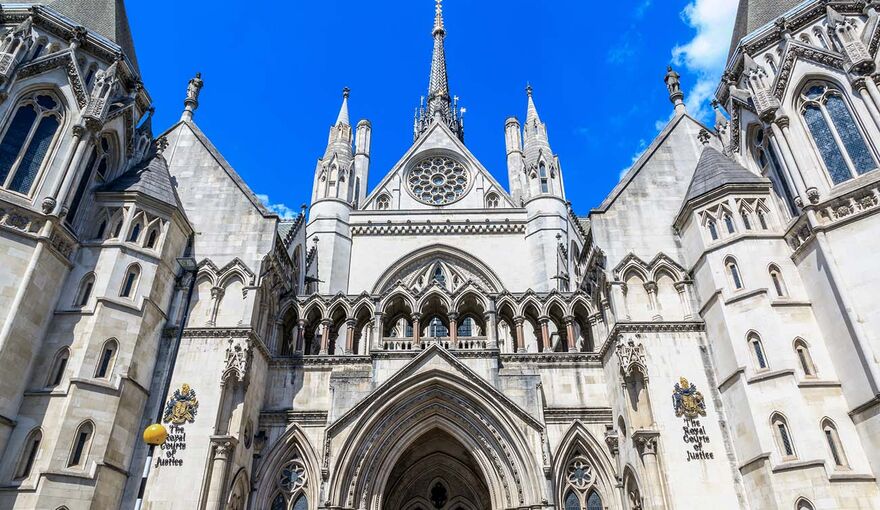There has been some discussion in recent years about the interaction between the test for testamentary capacity set out in the case of Banks v Goodfellow (decided in 1870) and provisions of the Mental Capacity Act 2005.
The 2021 case of Clitheroe v Bond confirmed that the Banks v Goodfellow test prevails and also provided guidance to be used where there is an allegation that beliefs are delusional.
Background
Clitheroe v Bond saw two siblings bring a claim over their mother Jean's £400,000 Estate. Jean had three children but one, Debra, died of cancer in 2009. She made two professionally drafted Wills (one in 2010 and one in 2013) leaving the majority of her Estate to her son John . Jean left her daughter Susan out of her Will after an argument over care provided to her deceased daughter Debra and because she thought Susan was a "shopaholic” who “would just fritter [her inheritance] away".
During a five day trial, Susan was able to show that her mother lacked testamentary capacity as a result of an extreme grief reaction or other affective disorder as a result of her daughter Debra's illness and untimely death. Susan claimed that this reaction to Debra's death caused her mother to suffer from insane delusions about Susan and had poisoned her mind against her to the extent that she lacked the requisite testamentary capacity when making her Wills. This lack of testamentary capacity rendered both Wills invalid and resulted in the Estate being distributed under the intestacy rules – giving both John and Susan a half share each of their mother's Estate.
John appealed the first instance decision by Deputy Master Linwood arguing that the test for testamentary capacity should be that of the Mental Capacity Act 2005, not the common law test set out in Banks v Goodfellow.
Banks v Goodfellow Test
The Banks v Goodfellow test has been relied up on for decades to determine testamentary capacity. Under this test for capacity, a Will is validly executed if it can be shown that the Testator:
- understood the nature of making a Will and its effects;
- understood the extent of the property of which he was disposing;
- was able to comprehend and appreciate the claims to which they ought to give effect; and
- had no disorder of the mind that perverted their sense of right or prevented the exercise of their natural faculties in disposing of their property by Will.
The burden of proof rests upon the person relying on the Will to show that the requisite capacity was present when the Will was made.
In considering an Appeal brought by John to the first instance decision, Mrs Justice Falk commented that in her view Parliament had not intended to replace the long-established common law test for testamentary capacity when the Mental Capacity Act 2005 came into force and she saw no good reason to depart from the Banks v Goodfellow test.
The case also considered the way in which retrospective capacity assessments should be approached. The Court confirmed that the Court and the experts must address their minds to determining whether, on a balance of probabilities and on the available evidence, the deceased had testamentary capacity. This is not the same as applying a standard required to make a clinical diagnosis in the lifetime of the deceased and the absence of a lifetime psychiatric assessment did not preclude a finding that the deceased was suffering from an affective disorder.
Delusions
In considering whether Jean had been suffering from delusions when she determined that her daughter was a “shopaholic” and that she would “fritter” her inheritance away, the Court looked at the test for delusions.
The principle recognised in Key v Key, that an affective disorder, such as a complex grief reaction, can impair capacity was applied.
The Court held that a simple mistaken belief that can be corrected would not amount to a delusion. A false belief needs to be irrational and fixed in nature to be a delusion. Assessing that requires a “holistic” assessment of the evidence. Mrs Justice Falk confirmed that the Court will, "take account of the nature of the belief, the circumstances in which it arose and whether there was an evidential basis for it, whether it was formed in the face of evidence to the contrary, the period of time for which it was held and whether it was the subject of any challenge."
What next?
The parties in Clitheroe and Bond were sent away to consider whether they could resolve matters by negotiation or mediation with a view to saving further significant legal costs but the outcome of the case is a useful summary for future cases of the tests to be applied when testamentary capacity is being considered and the extent to which false beliefs will be “fixed” enough to form delusions that impact on testamentary capacity.
For more information, please contact a member of our Contentious Trust and Probate team.
The information on this site about legal matters is provided as a general guide only. Although we try to ensure that all of the information on this site is accurate and up to date, this cannot be guaranteed. The information on this site should not be relied upon or construed as constituting legal advice and Howes Percival LLP disclaims liability in relation to its use. You should seek appropriate legal advice before taking or refraining from taking any action.

